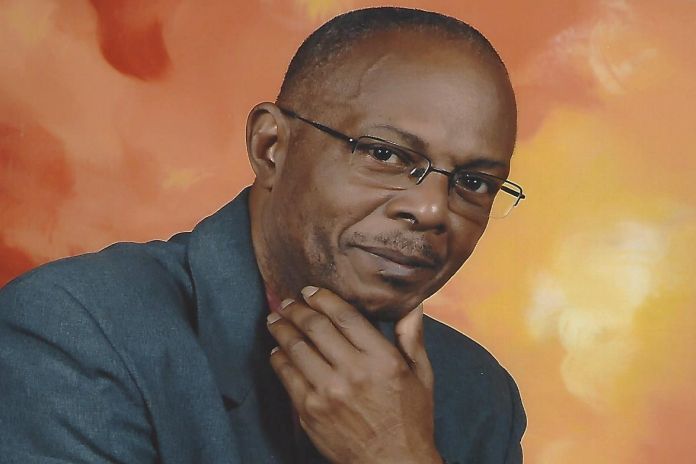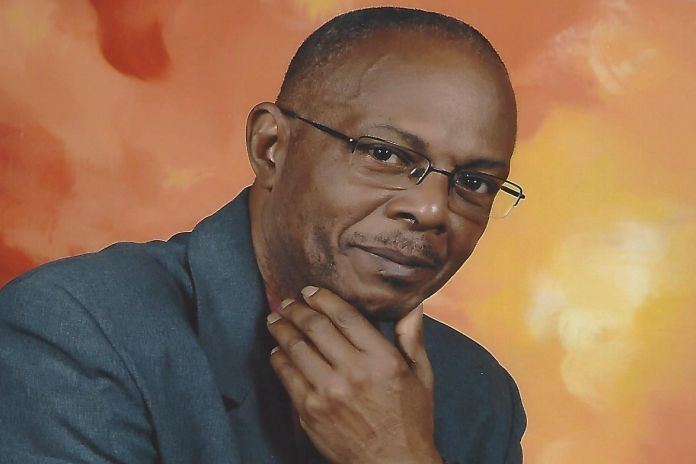A collapsing UWP administration leadership triumvirate


By Victor Poyotte
In my early studies on public administration, I was exposed to the concepts of de-jure and de-facto leadership. In this article, I will clarify both concepts and then use them to show how they apply to disturbing trends in the leadership approach used by the current United Workers Party (UWP) administration to manage the affairs of this country.
Conceptually, a de-jure leader is the formal or legal holder of a position by virtue of being elected or appointed to it. The de-facto leader, by contrast, is recognized by members of the team as the informal holder of a position because of the level of influence he/she is capable of exerting on the actions and decisions of the team based on personal qualities such as resourcefulness, skill, knowledge and special abilities.
The UWP administration leadership triumvirate
After observing the modus operandi of this administration from June 6, 2016, to June 6 2021, I have concluded that during the past five years, the real leaders running the government of Saint Lucia has been a triumvirate group from within and without the UWP administration. As I see it, the triumvirate comprises the father (Michael Chastanet), a de-facto leader operating as a private citizen and entrepreneur from outside the government, the son (Allen Chastanet), is the de-jure leader because he is the one formally appointed by the Governor-General to serve as head of government. Then there is the holy (Guy Joseph), a de-facto leader operating as the minister of toute baguaye (everything), within the government and the party’s pitbull in parliament.
Common interests
Although the two de-facto leaders have a common interest in keeping Allen Chastanet as head of government of Saint Lucia because his leadership allows them to achieve personal and commercial goals. However, both Michael and Joseph have different reasons for supporting the leadership of Allen Chastanet.
In the case of the Michael, he needs institutional support from the UWP administration headed by Allen to perhaps expand his business empire by getting as many of his commercial projects implemented as possible. He is happily playing the role of back seat driver, making decisions and taking actions to nudge his son in a direction that he wants the public sector to go. The holy Joseph, on the other hand, sees the administration remaining in office as his best opportunity to possibly amass more wealth using the “public contracts” mechanism. He is also aware that it is unlikely he can win the leadership of the UWP and therefore feels comfortable with Allen remaining at the helm of the party and government because it presumable gives him the leeway to manipulate the situation to his benefit.
In this triumvirate, Allen as the de-jure leader is caught between a rock and a hard place because he must walk a tight rope, having to manage the daily push and pull of daddy and the holy Joseph. If one sees Allen appearing to be mesmerized most of the time on television, have some sympathy for him because he faces an almost impossible task of keeping those two at bay for ‘a not so bright prime minister’ aptly described by his colleague, Antigua and Barbuda prime minister, Gaston Brown.
As the prime minister of Saint Lucia, Allen has been promoting a philosophy of running government like a business following the template of the recently defeated USA Republican president Donald Trump. As a student and practitioner of public administration for 40 years now, it is clear to me that Allen, by his many public statements and public policy actions on the subject, is not grounded in the fundamental principles and practices of public management. Besides, he has not been able to convince me and I daresay a wide cross-section of the citizens of Saint Lucia that he has achieved any notable success as a businessman to spearhead such a philosophy.
Another lesson Allen should have learnt these past five years is that, whereas his father can seemingly finance his installation as head of a political party and perhaps the campaign for governmental office, once he was installed as the de-jure leader of the government, he must demonstrate that he has the wherewithal to handle public management. In the 2021 general elections, we have a much wiser and smarter electorate who will not accept any amount of smooth talk, television showmanship, or ‘Five for Five’ bluffs. Five years to implement five policies initiatives that need only take five months to implement is hardly worth a discussion.
Michael Chastanet as the de-facto leader outside the government is now well known for his frequent public policy pronouncements on radio and television including, his recent utterances regarding when to call elections and down wright interference in public affairs where he has no locus standi. Readers will recall the media outcry when Michael was perceived as supervising the demolition of public buildings including the police canteen, the band room and the prisons on upper Bridge Street. Michael’s ostensive actions were contrary to government policy on the review and disposal of public assets. Yet to date, Allen has not seen it fit to investigate and enlighten concerned citizens as to Michael’s source of authority to seemingly supervise the destruction of public property.
Michael Chastanet is caught in his web of duplicity because before Allen entered politics, he had been telling everyone who would listen that he would not allow Allen to manage his business.
Looking back to those days, one can say that there must have been something the father knew about Allen’s leadership which he did not share with the country. Yet, when Allen became a politician and he challenged Stephenson King for the leadership of the UWP, it was the same father who used his radio show, “Open Mike,” and other media to promote his son as a good leader for the country. Michael saw an opportunity to assume a government back seat driver posture and he took it, who could blame him. Fast forward to the 2021 elections, Michael has a lot of guts to continue that charade after the dismal failure of Allen’s running government like a business.
Now to the de-facto role of the holy Joseph, who holds the portfolio of minister for economic development within the government and has been best described as the minister of toute baguaye and the prime minister’s – prime minister.
On the one hand, he seems to be the one who has been providing Allen with political guidance and support over the years, but on the other hand, he must be making it more difficult for Allen to cope with actions taken by his protégé that are tantamount to usurping the authority of the prime minister and in some instances that of other ministers. A case in point is the controversial Pajoah letter which is a vivid example of the undermining actions of the minister for economic development to issue. Another similar action taken by the minister to assume control of works in the aftermath of the Barre de l’sle landslide and make statements on how the government will handle the situation ahead of the minister for infrastructure.
Personal and commercial interest vs the public interest
At the end of the day, it is the electorate of this country who will have to determine whether the decisions and actions of the leadership of the UWP administration in the last five years have been in the public interest.
Now that King, the minister for infrastructure has jumped ship and is articulating his position on many of the major failed or incomplete national projects initiated by the Chastanet-led administration.
A major consideration for the electorate is whether the government exercised fiscal prudence by engaging in excessive borrowing for projects which were not a priority during the COVID-19 pandemic. As well, the electorate will determine whether it is in the public interest for the administration to give away hundreds of acres of land to so-called foreign investors, cheaply, as part of the Desert Star Holdings (DSH) and Cabot, while denying access to these lands to farmers and small business persons.
Source: caribbeannewsglobal.com


